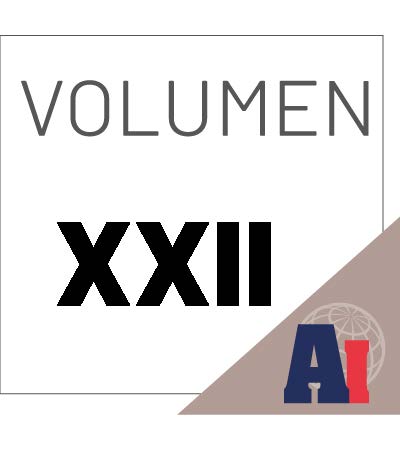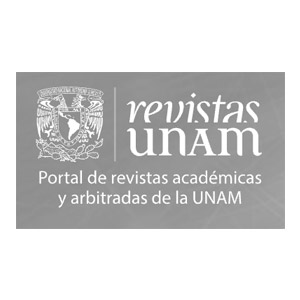Afrontando jurídica, política y socioeconómicamente la migración de las poblaciones de peces en el atlántico norte debido al cambio climático
Debido al cambio climático se está produciendo una migración significativa de poblaciones de peces, y la normativa e instrumentos económico-jurídicos internacionales existentes no están adaptados para gestionarla. La gobernanza socioeconómica y normativa actual sobre el presente asunto es insuficiente en vista de los conflictos surgidos e indicios de disputas futuras. En aras de evitar, reducir, atenuar y/o dirimir controversias de este tipo, y preservar tanto las relaciones internacionales como las poblaciones de peces, se propone establecer un nuevo instrumento de pesca holístico bajo la CNUDM. El instrumento debería establecer los principios básicos que rigen la ordenación de la migración de peces inducida por el cambio climático desde una perspectiva socioeconómica y jurídica. Asimismo, cubriría tanto las zonas económicas exclusivas como alta mar.
En particular, debería fomentar una integración mayor e inmediata de avances científicos relevantes en la política pesquera; mayor flexibilidad en el reconocimiento e intercambio de derechos de pesca; un enfoque combinado ascendente y descendente de la ordenación pesquera; la creación de un comité mundial de supervisión (compuesto por miembros de la FAO, el ICES, la OCDE y, cuando se trata —indirectamente— de subsidios, la OMC, y el recurso a ITLOS y al arbitraje internacional para resolver disputas. El último concepto principal (cambios en las subvenciones a la industria pesquera para abordar la sobrecapacidad y la sobrepesca) se está abordando actualmente a nivel de la OMC a través de un proyecto de texto y debería tenerse en cuenta en el nuevo instrumento.
Detalles del artículo
Uso de licencias Creative Commons (CC)
A partir del volumen 25, todos los textos publicados por el Anuario Mexicano de Derecho Internacional sin excepción, se distribuyen amparados con la licencia CC BY-NC 4.0 Internacional, que permite a terceros utilizar lo publicado, siempre que mencionen la autoría del trabajo y la primera publicación en esta revista.
Del volumen I al XIV de Anuario Mexicano de Derecho Internacional la licencia utilizada era Atribución-NoComercial-SinDerivadas 4.0 Internacional
Derechos de autoras o autores
De acuerdo con la legislación vigente de derechos de autor el Anuario Mexicano de Derecho Internacional reconoce y respeta el derecho moral de las autoras o autores, así como la titularidad del derecho patrimonial, el cual será transferido —de forma no exclusiva— al Anuario para permitir su difusión legal en acceso abierto.
Autoras o autores pueden realizar otros acuerdos contractuales independientes y adicionales para la distribución no exclusiva de la versión del artículo publicado en el Anuario Mexicano de Derecho Internacional (por ejemplo, incluirlo en un repositorio institucional o darlo a conocer en otros medios en papel o electrónicos), siempre que se indique clara y explícitamente que el trabajo se publicó por primera vez en el Anuario.
Para todo lo anterior, deben remitir la carta de transmisión de derechos patrimoniales de la primera publicación, debidamente requisitada y firmada por las autoras o autores. Este formato debe ser remitido en PDF a través de la plataforma OJS.
Derechos de lectoras o lectores
Con base en los principios de acceso abierto las lectoras o lectores de la revista tienen derecho a la libre lectura, impresión y distribución de los contenidos del Anuario por cualquier medio, de manera inmediata a la publicación en línea de los contenidos. El único requisito para esto es que siempre se indique clara y explícitamente que el trabajo se publicó por primera vez en el Anuario Mexicano de Derecho Internacional y se cite de manera correcta la fuente incluyendo el DOI correspondiente.
Citas
Azevêdo, R., “Economic Diversification and the Blue Economy - What role for a WTO Fisheries Subsidies Agreement?”, julio de 2019, disponible en: www.wto.org/english/news_e/spra_e/spra276_e.htm.
Barange, M. et al. (eds.), “Impacts of Climate Change on Fisheries an Aquaculture: Synthesis of Current Knowledge, Adaptation and Mitigation Options”, Technical Paper No. 627, Roma, FAO, 2018.
Bindoff, N. L. et al., Changing Ocean, Marine Ecosystems, and Dependent Communities, IPCC Special Report on the Ocean and Cryosphere in a Changing Climate, 2019.
Borunda, A., “Are Europe’s Historic Fires Caused by Climate Change?”, National Geographic, 31 de julio de 2018.
Brander, K. M., “Global Fish Production and Climate Change”, Proceedings of the National Academy of Sciences of the United States of America, 104, 2007.
Bryndum-Buchholz, A. et al., “Twenty-First-Century Climate Change Impacts on Marine Animal Biomass and Ecosystem Structure across Ocean Basins”, Global Change Biology, vol. 25, núm. 2, 2019. DOI: 10.1111/gcb.14512.
Caddell, R., “Precautionary Management and the Development of Future Fishing Opportunities: The International Regulation of New and Exploratory Fisheries”, The International Journal of Marine and Coastal Law, vol. 33, núm. 1. 2018, DOI: 10.1163/15718085-13310013.
Campana, S. E. et al., “Shifting Fish Distribution in Warming Sub‑Arctic Oceans”, Nature Research, 10:16448,2020: DOI: 10.1038/s41598-020-73444-y.
Castillo Murillejo, N. C. y Alvia Palma, D. N., El Mundo marino de Colombia: investigación y desarrollo de territorios olvidados, Universidad Nacional de Colombia, REMAR, 2003.
Centre for Climate and Energy Solutions, Wildfires and Climate Change (sin fecha), disponible en: https://www.c2es.org/.
Cheung W. W. L. et al., “Large Benefits to Marine Fisheries of Meeting the 1. 5°C global warming target”, Science, vol. 354, núm. 6319, 2016.
Cheung W. W. L. et al., “Large-Scale Redistribution of Maximum Fisheries Catch Potential in the Global Ocean under climate change”, Global Change Biology, vol. 16, núm. 1, 2010, DOI: 10.1111/j.1365-2486.2009.01995.x.
Consejo Europeo, Consejo de la Unión Europea, Acuerdos Internacionales de Pesca, disponibles en: https://www.consilium.europa.eu/es/policies/eu-fish-stocks/.
Diekert, F. K. y Nieminen, E., “International Fisheries Agreements with a Shifting Stock”, Dynamic Games and Applications, vol. 7, 2017.
Dukes, J. S. y Mooney, H. A., “Does Global Change Increase the Success of Biological Invaders?”, Trends in Ecology & Evolution, vol. 14, núm. 4. 1999.
Earle, S., Sea Change: A Message of the Oceans, Nueva York, Putnam’s, 1995.
Englander, G., “Property Rights and the Protection of Global Marine Resources”, Nature Sustainability, vol. 2, 2019. DOI: 10.1038/s41893-019-0389-9.
Essington, T. E. et al., “Catch shares, Fisheries and Ecological Stewardship: A Comparative Analysis of Resource Responses to a Rights-Based policy instrument”, Conservation Letters, vol. 5, núm. 3, 2012, DOI: 10. 1111/j.1755-263X.2012.00226.x.
European Commission (DG Environment) and the Pew Environment Group´s European Marine Programme, Seas at Risk annual conference, Towards Sustainable European Fisheries: The Double Challenge of Restructuring and Reducing the Fishing Fleet, Background Paper, Abstracts and Conference Proceedings, 2009.
FAO, Departamento, Comité de Pesca (COFI) - Departamento de Pesca y Acuicultura, disponible en: http://www. fao.org/fishery/about/es.
FAO, Plan de Acción Internacional para prevenir, desalentar y eliminar la pesca ilegal, no declarada y no reglamentada, Roma, 2001.
FAO, The State of World Fisheries and Aquaculture 2018–Meeting the Sustainable Development Goals, Roma, 2018.
Fernandes, J. A. et al., “Estimating the Ecological, Economic and Social Impacts of Ocean Acidification and Warming on UK Fisheries”, Fish and Fisheries, vol. 18, núm. 3, 2017.
Fidelman, P. I. J. et al., “Unpacking multilevel Adaptation to Climate Change in the Great Barrier Reef, Australia”, Global Environmental Change, vol. 23, núm. 4, 2013.
Free, C. M. et al., “Realistic Fisheries Management Reforms Could Mitigate the Impacts of Climate Change in Most Countries”, PLoS ONE, vol. 15, núm. 3, 2020. DOI: 10.1371/journal.pone.0224347.
Gaines, S. et al., “The Expected Impacts of Climate Change on the Ocean Economy”, High Level Panel for a sustainable Ocean Economy, World Resources Institute, Washington D. C., 2019.
GESAMP (IMO/FAO/UNESCO-IOC/WMO/WHO/IAEA/UN/UNEP Joint Group of Experts on the Scientific Aspects of Marine Environmental Protection) and Advisory Committee on Protection of the Sea, A Sea of Troubles, GESAMP Reports and Studies, Report No. 70, UNEP, 2001.
Grainger, C. A. y Costello. C., “The Value of Secure Property Rights: Evidence from Global Fisheries”, NBER Working Papers núm. 17019, National Bureau of Economic Research, Inc., 2011.
Grip, K., “International Marine Environmental Governance: A Review”, Ambio, vol. 46, 2017.
Gullestad, P. et al., “Management of Transboundary and Straddling Fish Stocks in the Northeast Atlantic in view of Climate-Induced Shifts in Spatial Distribution”, Fish and Fisheries, vol. 21, núm. 5, 2020. DOI: 10.1111/faf.12485.
Hannesson, R., “Zonal Attachment of Fish Stocks and Management Cooperation”, The Norwegian School of Economics, Fisheries Research, vol. 140, 2013, DOI:10.1016/j.fishres.2013.01.001.
ICCAT, Report of the Meeting of the Technical and Legal Editing Group of the Contracting Parties, Madrid, España, 28-29 de enero de 2019.
International Centre for Trade and Sustainable Development, Fisheries Subsidies Rules at the WTO: A Compilation of Evidence and Analysis, Geneva: ICTSD, 2018.
Luhmann, N., Law as a Social System, traducido del alemán por Ziegert, K., Kastner, F. (eds.) et al., Oxford Socio-Legal Studies, 2008.
Marine Climate Change Impacts Partnership, Marine Climate Change Impacts, Report Card 2017.
Mclaughlin Mitchell, S. y Prins, B. C., “Beyond Territorial Contiguity: Issues at Stake in Democratic Militarized Interstate Disputes”, International Studies Quarterly, vol. 43, núm. 1, 1999.
Messenger, G., “El Rol de Derecho Internacional Dentro del Desarrollo Sostenible y la Agenda 2030”, Revista Española de Derecho Internacional, vol. 69, 2017.
Miller, K. A., y Munro, G. R., “Climate and Cooperation: A new Perspective on the Management of Shared Fish Stocks”, Marine Resource Economics, vol. 19, núm. 3, 2004.
Miller, T. J. et al., “Scientific Considerations Informing Magnuson-Stevens Fishery Conservation and Management Act Reauthorization”, Fisheries Magazine (AFS), vol. 43, núm. 11, 2018.
Morley, J. W. et al., “Projecting shifts in thermal habitat for 686 Species on the North American Continental Shelf”, PLOS ONE, 2018, vol. 13, núm. 5, DOI: 10.1371/journal.pone.0196127.
Morris, C., “Brexit trade deal: What does it mean for fishing?”, BBC Rea-lity Check, 4 de septiembre de 2020.
Muhling, B. A. et al., “Past, Ongoing and Future Research on Climate Change Impacts on Tuna and Billfishes in the Western Atlantic”, Collective Volume of Scientific Papers, ICCAT, vol. 71, núm. 4, 2015.
Occhipinti-Ambrogi, A., “Marine Alien Species as an Aspect of Global Change”, Advances in Oceanography and Limnology, vol. 1, núm. 1, 2010, DOI: 10.1080/19475721003743876.
OECD (Organisation for Economic Co-operation and Development), The Ocean Economy in 2030, Paris: OECD Publishing, 2016.
OECD, “Support to fisheries: Levels and Impacts”, OECD Food, Agriculture and Fisheries Papers, No. 103, OECD Publishing, París, 2017. DOI: 10.1787/00287855-en.
Ojea, E. et al., “Fisheries Regulatory Regimes and Resilience to Climate Change”, Ambio, vol. 46, núm. 4, 2017, DOI: 10.1007/s13280-016-0850-1.
ONU, Intergovernmental Conference on Marine Biodiversity of Areas Beyond National Jurisdiction, (General Assembly resolution 72/249), disponible en https://www.un.org/bbnj/.
Oremus, K. L. et al., “Governance Challenges for Tropical Nations Losing Fish Species Due to Climate Change”, Nature Sustainability, 2020, vol. 3, núm. 4, 2020. DOI: 10.1038/s41893-020-0476-y.
Osman, M. B. et al., “Industrial-era Decline in Subarctic Atlantic Productivity”, Nature, vol. 569, 2019, disponible en: https://www-nature-com.bucm.idm.oclc.org/articles/s41586-019-1181-8.
Palacios-Abrantes et al., “The Transboundary Nature of the World’s Exploited Marine Species”, Scientific Reports, vol. 10, núm. 17668, 2020. DOI: 10.1038/s41598-020-74644-2.
Paor, R. de., “Climate Change and Arbitration: Annex Time before there won’t be a Next Time”, Journal of International Dispute Settlement, vol. 8, núm. 1, 2017, DOI: 10.1093/jnlids/idw025.
Parsons, P. A., “Migration as a Factor in Natural Selection”, Genetica, vol. 33, núm. 1, 1963.
Pinsky, M. et al., “Preparing Ocean Governance for Species on the Move”, Science, 2018, vol. 360, núm. 6394, 2018.
Plaganyi, E. E. et al., “Assessing the Adequacy of Current Fisheries Management Under Changing Climate: A southern Synopsis”, ICES Journal of Marine Science: Journal du Conseil, 68, 2011.
Poloczanska, E. S. et al., “Global Imprint of Climate Change on Marine Life”, Nature Climate Change, vol. 3, núm. 10, 2013. DOI: 10.1038/NCLIMATE1958.
Portner, H. O. et al. (eds.), “Summary for Policymakers” en IPCC Special Report on the Ocean and Cryosphere in a Changing Climate, 2019.
Ramirez, F. et al., “Climate impacts on global hot spots of marine biodiversity”, Science Advances, vol. 3, núm. 2, 2017, DOI: 10.1126/sciadv.601198.
Recueil des Sentences Arbitrales, vol. XXI, disponible en: http://legal.un.org/riaa/cases/vol_XXI/265-341.pdf.
Russell, D. A. y Vanderzwaag, D. L. (eds.), Recasting Transboundary Fisheries Management Arrangements in Light of Sustainability Principles–Canadian and International Perspectives, Martinus Nijh off Publishers, 2010, Legal Aspects of Sustainable Development Series, vol. 8.
Sands, P. y Peel, J., Principles of International Environmental Law, 4a. ed, Cambride University Press, 2018.
Schatz, V. J. et al., “The 2018 Agreement to Prevent Unregulated High Seas Fisheries in the Central Arctic Ocean: A Critical Analysis”, The International Journal of Marine and Coastal Law, vol. 34, núm. 2, 2019, DOI:10. 1163/15718085-23342015.
Schatz, V., “Fishing for Interpretation: The ITLOS Advisory Opinion on Flag State Responsibility for Illegal Fishing in the ZEE”, Ocean Development & International Law, vol. 47, núm. 4, 2016.
Serdy, A., The New Entrants Problem in International Law, Cambridge University Press, 2016.
Soto, D. et. al., Consecuencias del cambio climático para la pesca y la acuicultura, FAO, 2012.
Spijkers, J. y Boonstra, W. J., “Environmental change and social conflict: the northeast Atlantic mackerel dispute”, Regional Environmental Change, vol. 17, 2017.
Tapia Jopia, C., Manual práctico para la pesca artesanal y la acuicultura de pequeña escala en Chile, Centro de Estudios de Sistemas Sociales, FAO, 2021.
Thorson, J. T. y Minto, C., “Mixed Effects: a Unifying Framework for Statistical Modelling in Fisheries Biology”, ICES Journal of Marine Science, vol. 72, núm. 5, 2015, DOI: 10. 1093/icesjms/fsu213.
UN Climate Change, “What do adaptation to climate change and climate change resilience mean?”, sin fecha, disponible en: https://unfccc.int/topics/adaptation-and-resilience/the-big-picture/what-do-adaptation-to-climate-change-and-climate-resilience-mean.
Van Damme, I., “Reflections on the WTO Negotiations on Prohibiting IUU Fishing Subsidies”, Global Subsidies Initiative Policy Brief, The International Institute for Sustainable Development, 2020.
Von Schuckmann, K. et al., “Copernicus Marine Service Ocean State Report”, núm. 4, Journal of Operational Oceanography, 2020, DOI: 10.1080/1755876X.2020.1785097.
Young, M. A., Trading Fish, Saving Fish: The Interaction between Regimes in International Law, Cambridge University Press, 2011.
Zuñiga, D. et al., “Migration Confers Winter Survival Benefits in a Partially Migratory Songbird”, eLife, vol. 6, 2017, disponible en: https://doi.org/10.7554/eLife.28123.001.



































